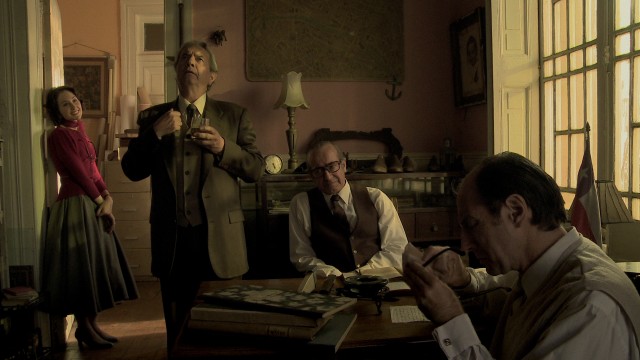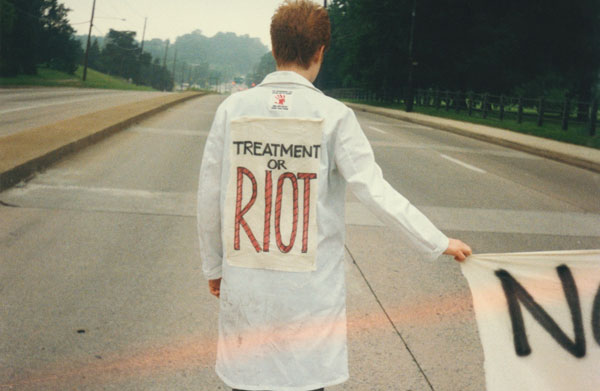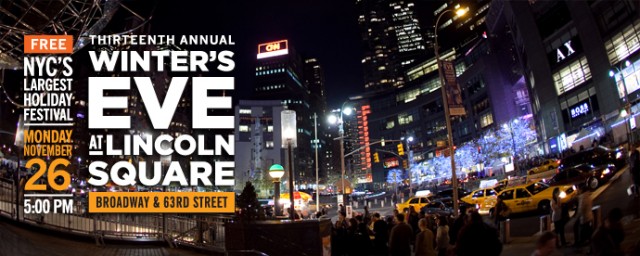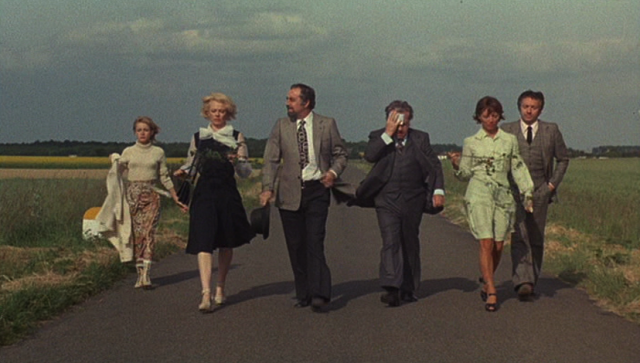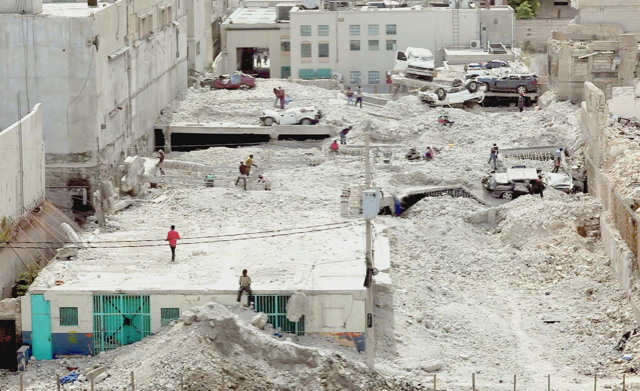
Documentary reveals that there’s still a whole lot to be done in Haitian recovery effort as organizations fight over details
FATAL ASSISTANCE (ASSISTANCE MORTELLE) (Raoul Peck, 2012)
Wednesday, June 19, 6:30, Film Society of Lincoln Center, Elinor Bunin Munroe Film Center, Francesca Beale Theater, 144 West 65th St. at Amsterdam Ave.
Thursday, June 20, 7:00, IFC Center, 323 Sixth Ave. at West Third St.
Festival runs June 13-23
www.ff.hrw.org
 Award-winning Haitian filmmaker Raoul Peck’s Fatal Assistance begins by posting remarkable numbers onscreen: In the wake of the devastating earthquake that hit his native country on January 12, 2010, there were 230,000 deaths, 300,000 wounded, and 1.5 million people homeless, with some 4,000 NGOs coming to Haiti to make use of a promised $11 billion in relief over a five-year period. But as Peck reveals, there is significant controversy over where the money is and how it’s being spent as the troubled Haitian people are still seeking proper health care and a place to live. “The line between intrusion, support, and aid is very fine,” says Jean-Max Bellerive, the Haitian prime minister at the time of the disaster, explaining that too many of the donors want to cherry-pick how their money is used. Bill Vastine, senior “debris” adviser for the Interim Commission for the Reconstruction of Haiti (CIRH), which was co-chaired by Bellerive and President Bill Clinton, responds, “The international community said they were gonna grant so many billions of dollars to Haiti. That didn’t mean we were gonna send so many billions of dollars to a bank account and let the Haitian government do with it as they will.” Somewhere in the middle is CIRH senior housing adviser Priscilla Phelps, who seems to be the only person who recognizes why the relief effort has turned into a disaster all its own; by the end of the film, she is struggling to hold back tears. A self-described “political radical,” Peck doesn’t play it neutral in Fatal Assistance, instead adding mournful music by Alexei Aigui, somber English narration by a male voice (Peck narrates the French-language version), and a female voice-over reading melodramatic “Dear friend” letters that poetically trash what is happening in Haiti. “Every few decades, the rich promise everything to the poor,” the male voice-over says. “The dream of eradication of poverty, disease, death remains a perpetual fantasy.” Even though Peck (Lumumba, 2010 Human Rights Watch Film Festival centerpiece Moloch Tropical) attacks the agendas of the donors and NGOs while pushing an agenda of his own, Fatal Assistance is an important document that shows that just because money pours in to help in a crisis situation doesn’t mean that the things that need to be done are being taken care of properly. Fatal Assistance is the centerpiece selection of the 2013 Human Rights Watch Film Festival, where it will be screening June 19 at Lincoln Center and June 20 at the IFC Center with Peck, the former Haitian minister of culture, the 1994 winner of the festival’s Nestor Almendros Award for courage in filmmaking, and the 2001 festival Lifetime Achievement Award winner, on hand for Q&As after both presentations.
Award-winning Haitian filmmaker Raoul Peck’s Fatal Assistance begins by posting remarkable numbers onscreen: In the wake of the devastating earthquake that hit his native country on January 12, 2010, there were 230,000 deaths, 300,000 wounded, and 1.5 million people homeless, with some 4,000 NGOs coming to Haiti to make use of a promised $11 billion in relief over a five-year period. But as Peck reveals, there is significant controversy over where the money is and how it’s being spent as the troubled Haitian people are still seeking proper health care and a place to live. “The line between intrusion, support, and aid is very fine,” says Jean-Max Bellerive, the Haitian prime minister at the time of the disaster, explaining that too many of the donors want to cherry-pick how their money is used. Bill Vastine, senior “debris” adviser for the Interim Commission for the Reconstruction of Haiti (CIRH), which was co-chaired by Bellerive and President Bill Clinton, responds, “The international community said they were gonna grant so many billions of dollars to Haiti. That didn’t mean we were gonna send so many billions of dollars to a bank account and let the Haitian government do with it as they will.” Somewhere in the middle is CIRH senior housing adviser Priscilla Phelps, who seems to be the only person who recognizes why the relief effort has turned into a disaster all its own; by the end of the film, she is struggling to hold back tears. A self-described “political radical,” Peck doesn’t play it neutral in Fatal Assistance, instead adding mournful music by Alexei Aigui, somber English narration by a male voice (Peck narrates the French-language version), and a female voice-over reading melodramatic “Dear friend” letters that poetically trash what is happening in Haiti. “Every few decades, the rich promise everything to the poor,” the male voice-over says. “The dream of eradication of poverty, disease, death remains a perpetual fantasy.” Even though Peck (Lumumba, 2010 Human Rights Watch Film Festival centerpiece Moloch Tropical) attacks the agendas of the donors and NGOs while pushing an agenda of his own, Fatal Assistance is an important document that shows that just because money pours in to help in a crisis situation doesn’t mean that the things that need to be done are being taken care of properly. Fatal Assistance is the centerpiece selection of the 2013 Human Rights Watch Film Festival, where it will be screening June 19 at Lincoln Center and June 20 at the IFC Center with Peck, the former Haitian minister of culture, the 1994 winner of the festival’s Nestor Almendros Award for courage in filmmaking, and the 2001 festival Lifetime Achievement Award winner, on hand for Q&As after both presentations.
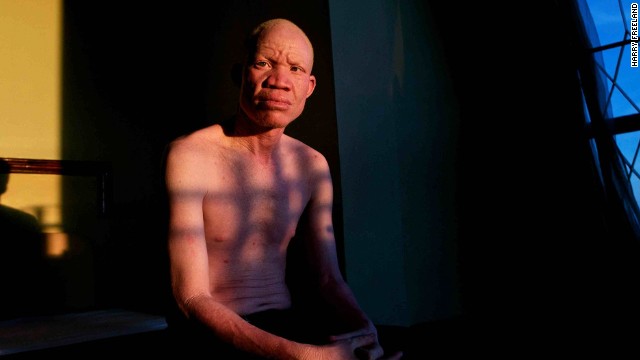
 One of the themes of the twenty-fourth edition of the Human Rights Watch Film Festival is Traditional Values and Human Rights, and it is exemplified by the frightening yet inspiring documentary In the Shadow of the Sun. In January 2007, Josephat Torner, one of an estimated 170,000 albinos living in Tanzania, told his wife and kids that he was setting off for two months to travel the country to educate local communities about albinism in the wake of a series of dismemberments and killings brought on by witch doctors claiming that the body parts of albinos will bring people wealth and success. “This is what our lives have become,” Torner tells director, producer, editor, and cameraman Harry Freeland at the beginning of the film. “One of the many things we have had to learn is to live in danger.” Two months turned into years as Torner battled Tanzanians’ fears that albinos were white ghosts or demons, forcing them to live in camps or hiding them from public view. Freeland also focuses on Vedastus Chinese Zangule, a teenager who wants to go to school to become an electrician, but his efforts to get an education are continually thwarted by red tape and discrimination. Torner becomes a mentor to the open and honest Vedastus, trying to help him achieve his goals against the odds. The documentary, which features beautiful vistas in Tanzania, particularly on Ukerewe Island, where a community of albinos live as if in exile from the mainland, is narrated by Torner and Vedastus, both of whom are determined not to give up. Torner continually risks his life, going into the neighborhoods where maimings and killings have taken place, trying to prove to the men, women, and children who live there that albinos are just people, not monsters to be exploited as good-luck charms. Meanwhile, more albinos are murdered as Torner continues his journey.
One of the themes of the twenty-fourth edition of the Human Rights Watch Film Festival is Traditional Values and Human Rights, and it is exemplified by the frightening yet inspiring documentary In the Shadow of the Sun. In January 2007, Josephat Torner, one of an estimated 170,000 albinos living in Tanzania, told his wife and kids that he was setting off for two months to travel the country to educate local communities about albinism in the wake of a series of dismemberments and killings brought on by witch doctors claiming that the body parts of albinos will bring people wealth and success. “This is what our lives have become,” Torner tells director, producer, editor, and cameraman Harry Freeland at the beginning of the film. “One of the many things we have had to learn is to live in danger.” Two months turned into years as Torner battled Tanzanians’ fears that albinos were white ghosts or demons, forcing them to live in camps or hiding them from public view. Freeland also focuses on Vedastus Chinese Zangule, a teenager who wants to go to school to become an electrician, but his efforts to get an education are continually thwarted by red tape and discrimination. Torner becomes a mentor to the open and honest Vedastus, trying to help him achieve his goals against the odds. The documentary, which features beautiful vistas in Tanzania, particularly on Ukerewe Island, where a community of albinos live as if in exile from the mainland, is narrated by Torner and Vedastus, both of whom are determined not to give up. Torner continually risks his life, going into the neighborhoods where maimings and killings have taken place, trying to prove to the men, women, and children who live there that albinos are just people, not monsters to be exploited as good-luck charms. Meanwhile, more albinos are murdered as Torner continues his journey.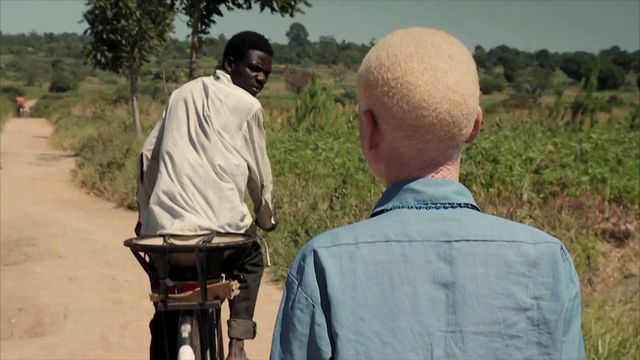
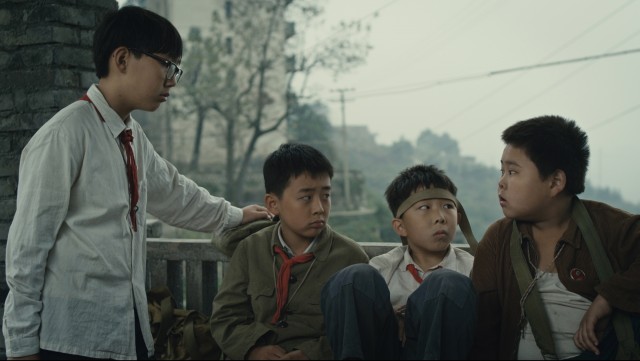
 Sixth Generation Chinese director Wang Xiaoshuai (Beijing Bicycle, Shanghai Dreams) reaches back into his childhood in the poignant, autobiographical 11 Flowers. Set in 1975 near the end of Mao’s Cultural Revolution, the film is seen through the eyes of eleven-year-old Wang Han (Liu Wenquing), who lives with his family in a poor, remote village in Guizhou province as part of the Third Front movement, in which the nation moved industry inland to protect it from possible Soviet attack. Wang’s father (Wang Jingchun) spends the week away from his wife (Yan Ni), son, and young daughter (Zhao Shiqi), working at an opera house in town. When one of Wang’s teachers, Miss Zhou (Yu Yue), tells Wang that he should get a clean shirt so he can look good as the new class gym leader, his mother at first is mad at him for even asking for such a luxury item but ultimately makes him one. However, while fooling around with his friends, Louse (Zhang Kexuan), Mouse (Zhong Guo Liuxing), and Wei Jun (Lou Yihao), something happens to the shirt, which soon winds up in the hands of a possible murderer (Wang Ziyi) on the run from the police. Based on actual events that happened to him as a child, Wang’s 11 Flowers is a beautifully crafted coming-of-age film, reminiscent of Rob Reiner’s Stand by Me. Wang, who was known as Wang Han when he was a boy, narrates the opening and closing himself, adding yet more personal touches to the tale. Hovering over the work is the specter of the Cultural Revolution; in one moving scene, adults have gathered for a small dinner party, but when one of them starts singing an old favorite tune, Wang’s father quickly changes it to a Mao-endorsed propaganda song for fear of being caught doing something against the government’s wishes. Much like Wang’s father teaches his son how to paint, interpreting reality on canvas, director Wang interprets his childhood reality onscreen in this small gem of a film.
Sixth Generation Chinese director Wang Xiaoshuai (Beijing Bicycle, Shanghai Dreams) reaches back into his childhood in the poignant, autobiographical 11 Flowers. Set in 1975 near the end of Mao’s Cultural Revolution, the film is seen through the eyes of eleven-year-old Wang Han (Liu Wenquing), who lives with his family in a poor, remote village in Guizhou province as part of the Third Front movement, in which the nation moved industry inland to protect it from possible Soviet attack. Wang’s father (Wang Jingchun) spends the week away from his wife (Yan Ni), son, and young daughter (Zhao Shiqi), working at an opera house in town. When one of Wang’s teachers, Miss Zhou (Yu Yue), tells Wang that he should get a clean shirt so he can look good as the new class gym leader, his mother at first is mad at him for even asking for such a luxury item but ultimately makes him one. However, while fooling around with his friends, Louse (Zhang Kexuan), Mouse (Zhong Guo Liuxing), and Wei Jun (Lou Yihao), something happens to the shirt, which soon winds up in the hands of a possible murderer (Wang Ziyi) on the run from the police. Based on actual events that happened to him as a child, Wang’s 11 Flowers is a beautifully crafted coming-of-age film, reminiscent of Rob Reiner’s Stand by Me. Wang, who was known as Wang Han when he was a boy, narrates the opening and closing himself, adding yet more personal touches to the tale. Hovering over the work is the specter of the Cultural Revolution; in one moving scene, adults have gathered for a small dinner party, but when one of them starts singing an old favorite tune, Wang’s father quickly changes it to a Mao-endorsed propaganda song for fear of being caught doing something against the government’s wishes. Much like Wang’s father teaches his son how to paint, interpreting reality on canvas, director Wang interprets his childhood reality onscreen in this small gem of a film.